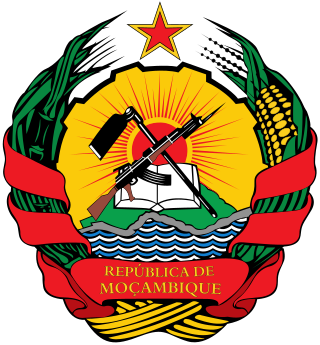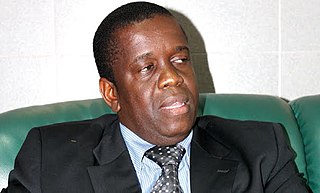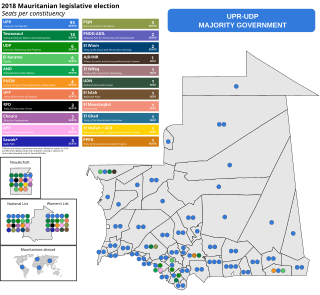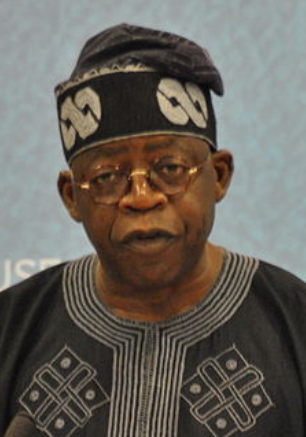
Politics in Mozambique takes place in a framework of a semi-presidential representative democratic republic, whereby the President of Mozambique is head of state and head of government in a multi-party system. Executive power is exercised by the government. Legislative power is vested in both the government and the Assembly of the Republic.

Samora Moisés Machel was a Mozambican military commander and political leader. A socialist in the tradition of Marxism–Leninism, he served as the first President of Mozambique from the country's independence in 1975.

FRELIMO is a democratic socialist political party in Mozambique. It has been the country's ruling party since 1977.

Elections in Angola take place within the framework of a multi-party democracy. The National Assembly is directly elected by voters, while the leader of the party or coalition with the most seats in the National Assembly automatically becomes President.

Armando Emílio Guebuza is a Mozambican politician who was the third President of Mozambique from 2005 to 2015.

Mozambique elects representatives at several levels:

Elections in Nigeria involve choosing representatives to the federal government of Nigeria and the various states in the fourth republic Nigeria. Elections in Nigeria began in 1959 with a number of political parties. It's a method of choosing leaders where the citizens have the right to vote and to be voted for. In 2023, Nigerians were getting ready for presidential elections with about 93.4 million eligible voters across the federation for the 25 February election.

Afonso Marceta Macacho Dhlakama was a Mozambican politician and the leader of RENAMO, an anti-communist guerrilla movement that fought the FRELIMO government in the Mozambican Civil War before signing a peace agreement and becoming an opposition political party in the early 1990s. Dhlakama was born in Mangunde, Sofala Province.

Filipe Jacinto Nyusi is a Mozambican politician serving since 2015 as the fourth President of Mozambique. He is the current leader of FRELIMO, the party that has governed Mozambique since its independence from Portugal in 1975. Additionally, he has served as the Chairman of the Southern African Development Community since August 2020. During his time in office, President Nyusi has promoted peace and security, and signed multiple agreements with the main opposition parties, RENAMO, to bring a definitive and lasting peace to Mozambique.

Uria Timoteo Simango was a Mozambican Presbyterian minister and prominent leader of the Mozambique Liberation Front (FRELIMO) during the liberation struggle against Portuguese colonial rule. His precise date of death is unknown as he was extrajudicially executed along with several other FRELIMO dissidents and his wife, Celina by the post-independence government of Samora Machel.

General elections to elect the president, Assembly of the Republic, and Provincial Assemblies was held in Mozambique on 28 October 2009. Incumbent President Armando Guebuza ran for re-election as the FRELIMO candidate; he was challenged by opposition leader Afonso Dhlakama, who had stood as the RENAMO candidate in every presidential election since 1994. Also standing were Daviz Simango, the Mayor of Beira, who was a RENAMO member before founding his own party, the Democratic Movement of Mozambique (MDM), earlier in 2009.

The Democratic Movement of Mozambique is a political party in Mozambique. Founded on 6 March 2009, it was led by Daviz Simango, who was the Mayor of Beira. It formed after breaking with RENAMO, the main opposition party.

Daviz Mbepo Simango was a Mozambican politician who was Mayor of Beira from 2003 to the day of his death in February 2021. He was also the President of the Democratic Movement of Mozambique (MDM). He was son of Uria Timoteo Simango the first Vice-President of FRELIMO and Celina Tapua Simango. He joined the main opposition party RENAMO in 1997 and became Mayor of Beira in 2003 as its candidate. On March 6, 2009, he founded a new party, the Movimento Democrático de Moçambique, or MDM.

General elections were held in Mozambique on 15 October 2014. Filipe Nyusi, the candidate of the ruling FRELIMO, was elected president, and FRELIMO retained its parliamentary majority.

Parliamentary elections were held in Mauritania in September 2018; the first round took place on 1 September, with a second round held on 15 September. At the national level, elections were held in 157 constituencies, each electing one member to the National Assembly. Elections were also held in 13 regional councils and 219 municipalities.

General elections were planned to take place in Haiti sometime in 2023, though they did not take place. The parliamentary elections had originally been scheduled for 27 October 2019, but were postponed to 26 September 2021. The elections were then postponed again to 7 November 2021. General elections were scheduled to be held in Haiti on 7 November 2021 to elect the president and Parliament, alongside a constitutional referendum. However, in September 2021, they were postponed following the dismissal of the members of the Provisional Electoral Council by acting Prime Minister Ariel Henry. Prime Minister Henry later stated that he hoped to hold the elections in early 2022. On 8 February 2022, he called for renewed efforts to organize elections. In December 2022, he signed an agreement to hold the elections in 2023, but stated in February 2024 that they will be held once the security situation was under control. Henry later committed to hold the elections by August 2025, but resigned in April 2024 to make way for a transitional presidential council, which is expected to hold the presidential election in early 2026.

General elections were held in Mozambique on 15 October 2019. During the leadup to the elections, assassinations and significant intimidation of prominent leaders of opposition parties and election observers were alleged. In addition, state resources, media, and aid for cyclone victims were also alleged to be used in favour of the ruling party (FRELIMO) and its candidates. Local elections observers, civil society organizations, the Commonwealth Observer Group, the European Union Election Observation Mission, and several national and international entities classified the elections as rigged. Nevertheless, the incumbent president Filipe Nyusi of FRELIMO was declared re-elected with 73% of the vote. The main opposition party RENAMO as well as the other oppositions parties involved in the elections contested the results, claiming there were numerous irregularities, and accusing FRELIMO of "massive electoral fraud", including hundreds of thousands of "ghost voters". As evidence for the international community, Ossufo Momade, the president of the main opposition party RENAMO, transported to Europe a box filled with vote ballots that had been marked in favor of the incumbent president Filipe Nyusi of FRELIMO before the commencement of voting. Despite these occurrences, the international community largely ignored any concerns of fraud, and gradually countries started recognizing the incumbent president Filipe Nyusi of FRELIMO as the winner of the elections.

General elections were held in Equatorial Guinea on 20 November 2022 to elect the President and members of Parliament, alongside local elections. Originally the parliamentary elections had been scheduled for November 2022 and presidential elections for 2023. However, in September 2022 Parliament approved a proposal to merge the elections due to economic constraints. The government announced on 26 November 2022 that Obiang had won the election by an overwhelming margin, as expected. It stated that provisional results showed him with 97% of the vote on a turnout of 98%. The elections were considered a sham by international observers.

The 2023 Nigerian elections were held in large part on 25 February and 11 March 2023. The president and vice president were elected on 25 February, with incumbent President Muhammadu Buhari ineligible to run, being term-limited. Additionally, there were also elections on the same day for the Senate and the House of Representatives. On 11 March, twenty-eight gubernatorial elections were held alongside elections to state houses of assembly in all 36 states. Three additional gubernatorial elections will be held later in the year alongside potential rerun elections for regularly scheduled elections annulled from earlier in the year.

General elections were held in Panama on 5 May 2024 to elect a new President of Panama, members of the National Assembly and local governments. Due to constitutional term limits, incumbent president Laurentino Cortizo was ineligible for a second consecutive term. The winners of the general election, including the new president of Panama, will be inaugurated on 1 July.


















